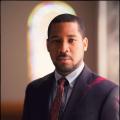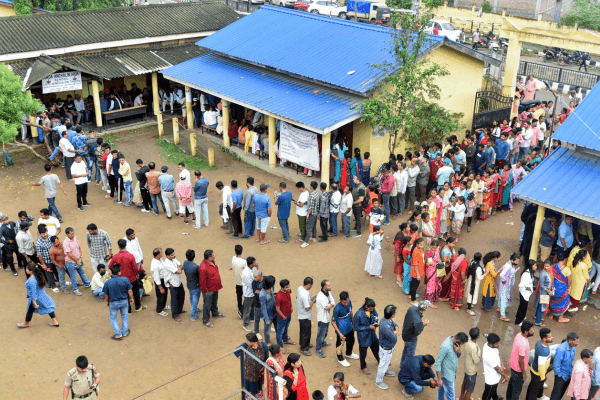This past week, the primary election in the state of Georgia demonstrated how crucial it will be to mobilize the Black church for the upcoming general election. Georgia residents, many in minority communities, stood in line for up to seven hours due to failed equipment and insufficient training for poll workers. These types of failures in the voting process may become additional tools in the arsenal of voter suppression, and the Black community must be prepared.
COVID-19 is killing African Americans at a rate three times higher than that of white people. With the disproportionate representation of African Americans in what have been deemed essential jobs such as grocery cashiers, mail carriers, security guards, health aides, gas-station attendants, and fast-food cooks, rushing to reopen local economies will likely increase the infection rate and death toll.
Valerie Wilson, director of the Program on Race, Ethnicity, and the Economy at the Economic Policy Institute, states, "People are having to choose between their economic security and their health security."
The new threat posed by COVID-19 joins the ongoing threat against Black lives from police violence and a criminal justice system that protects white supremacy. In recent weeks even more names have been added to the tragic litany: George Floyd, Breonna Taylor, Ahmaud Arbery.
And we are in an election season — in less than six months we will vote for local, state, and national leaders. In this time of pandemic and police violence, Black church communities must be energetic and creative to mobilize the Black vote.
Since the passage of the Voters Rights Act, the Black church community has been vocal in organizing their communities to register voters in an effort to ensure that the Black community is respected as a voting bloc. Both the presumptive Republican and Democratic Party presidential candidates in 2020 have laid claim to the Black vote. While campaigning in Michigan in 2016, Donald Trump boasted, “At the end of four years, I guarantee you that I will get over 95 percent of the African American vote.” Recently, Joe Biden appeared on “The Breakfast Club,” a radio show popular with Black audiences, and suggested that African Americans who are considering voting for President Trump “ain’t Black.”
Securing the Black vote is a priority for both parties. Higher Black turnout does not equate to Democratic wins, but whatever party secures this voting bloc has increased chances for winning — ask Gov. Larry Hogan of Maryland.
Normally, the election season is filled with local, state, and national politicians making campaign appearances at Black churches. Politicians would share their stump speeches and recite their political resume to demonstrate how they have been an ally to the Black community — all in an effort to secure the Black vote.
But these are not normal times. Black communities are facing threats of voter suppression from both the pandemic and politicians.
The Black church has been a gathering place for civic discussion, and COVID-19 has closed the doors of our buildings. We are used to gathering to register new voters, collect signatures, and have lists of phone numbers, name, and addresses to remind parishioners of Election Day, but social distancing has made this community-building work more challenging.
Adding insult to injury, communities of color are still plagued by acts of systemic racism from political officials. For months, President Donald Trump has falsely claimed on his Twitter account that absentee voting and voting by mail would lead to extensive voter fraud and corruption in an effort to discourage states from implementing mail-in voting. The New York Times reports that the Republican Party, the Trump campaign, and conservative activists are mounting an aggressive national effort to recruit up to 50,000 volunteers in 15 key states to monitor polling places and challenge ballots and voters deemed suspicious.
Given the disproportionate effect that COVID-19 is having on communities of color, the ongoing racism in policing and criminal justice, and the threats of voter suppression, it is important that these communities prepare to hold elected officials responsible for their leadership or lack thereof in this upcoming election season.
While many pastors of Black congregations are facing challenges associated with COVID-19 in their faith communities, they cannot allow their congregants to become lethargic to the 2020 election. Black church communities cannot afford to allow the pandemic to suppress the Black vote.
If Black communities are not careful, they will find themselves at the whim of elected district attorneys and judges who refuse to fight against racism in the justice system; school board members who hire superintendents that are not committed to equity; and mayors and city council members that value the voice of the wealthy and ignore the impoverished.
Just as important, if not more so, than re-opening their church campuses, Black pastors should focus on registering their communities to vote, recognizing that the implications of this election will affect generations to come.
In a recent Facebook video, the Rev. Dr. Leslie Callahan, senior pastor of St. Paul’s Baptist Church in Philadelphia, encouraged Pennsylvanian residents to vote by mail for the upcoming primary. This video was a part of a social media campaign under #GoTellItOnTheMountain, where minority clergy leaders stressed the importance of maintaining both social distancing and their civic responsibilities.
Other pastors and churches could expand their online presence to include virtual town hall meetings with political candidates. The challenge presented by COVID-19 could now be an opportunity for Black churches to reach an even wider audience through Zoom events and Facebook Live.
This strategy may be key for the Black communities’ participation in the 2020 election. It’s time that Black pastors investigate their electoral options in their local communities — or advocate for better ones.
Lives depend on it.
Got something to say about what you're reading? We value your feedback!







